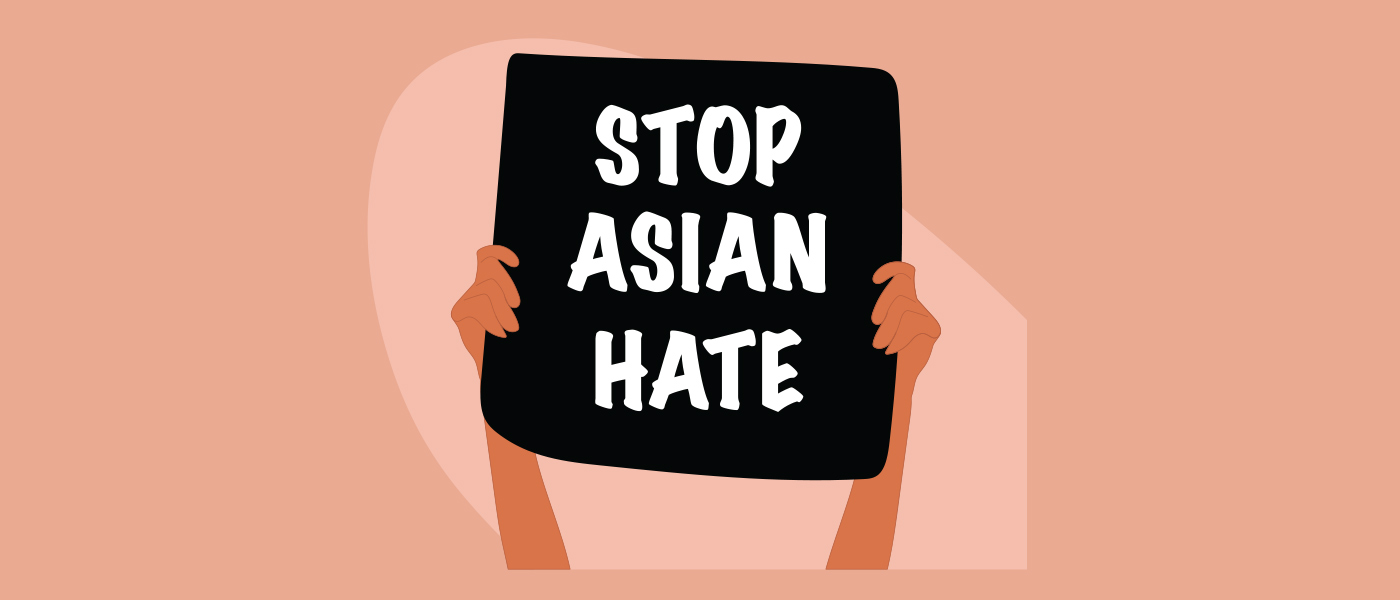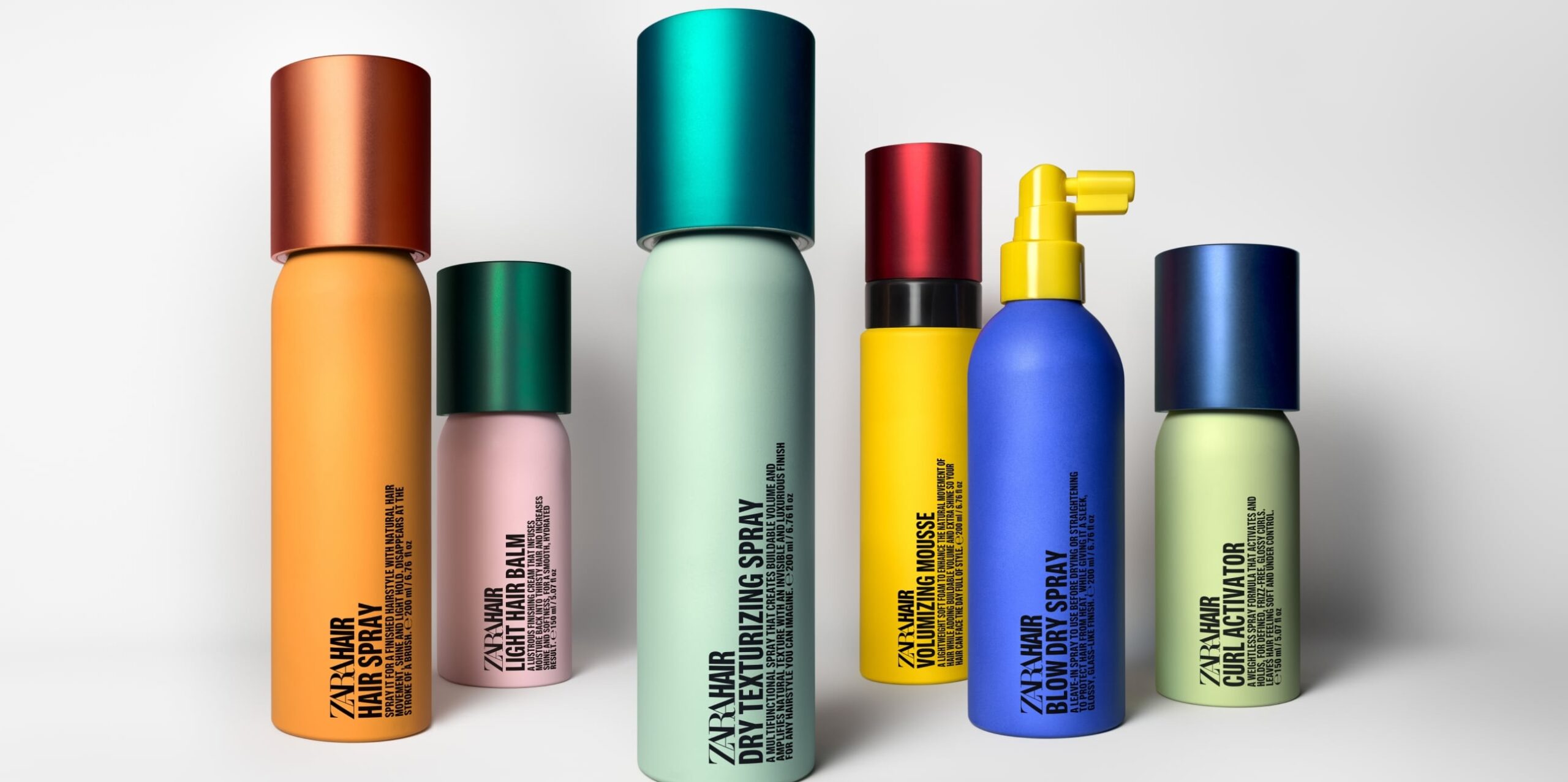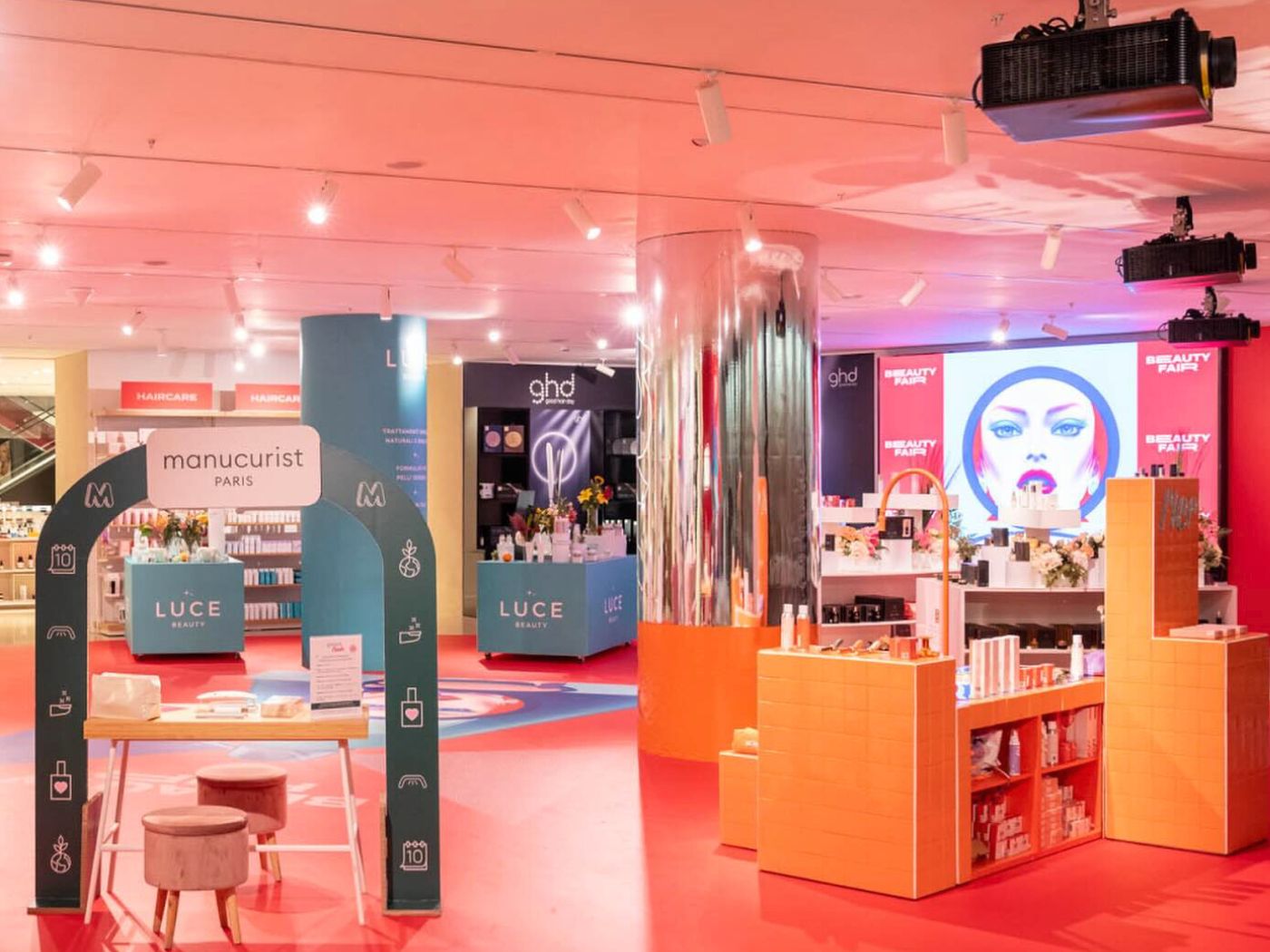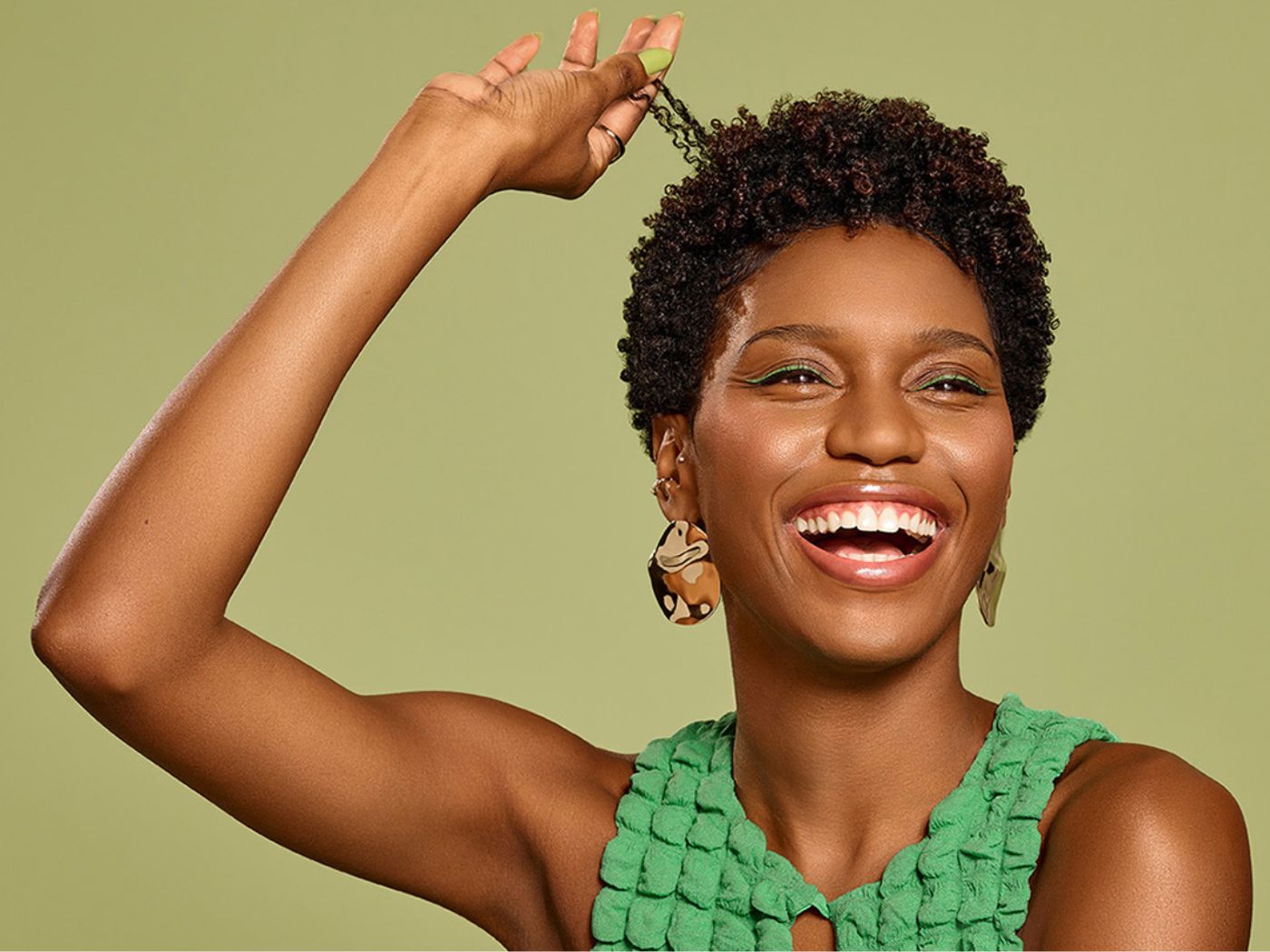Across the country, Anti-Asian hate crime is increasing at an alarming rate. The Center for Study of Hate and Extremism recently reported that anti-Asian hate crimes rose by 149 percent in 16 American cities in 2020 (including most of the U.S.’s largest cities), while overall hate crimes dropped by seven percent. Here, Asian American beauty industry leaders speak out about the violence, their experience of discrimination, and what can be done to generate awareness and education to stop these hate crimes.
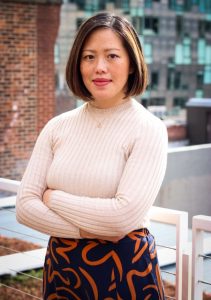
Lin Chen, Founder and CEO, Pink Moon
“Anti-Asian racism is woven into the fabric of American history; one of the biggest racist myths that has attempted to silence this fact is the idea that we, as Asians, are the ‘model minority.’ I think the current climate is really breaking the illusions that anyone might have held about Asian folks not being victims of racism. We’ve reached a point where our suffering is now undeniable—there are countless horrific examples of hate crimes committed against Asian Americans well documented throughout mainstream media outlets, and social media allows individuals the ability to directly share their personal experiences with the public on a large scale. My hope is that we continue condemning these crimes and keep having conversations about the prevalence of Anti-Asian racism in the U.S.
I’ve been utilizing my business, Pink Moon, as a space to give back and raise awareness. With the help of our customers, we’ve donated money to two organizations: Womankind and AAPI Women Lead. Womankind is a NYC-based nonprofit that supports Asian women who are survivors of domestic violence. AAPI Women Lead is a wonderful organization that is currently working on ways to end violence within and against the Asian community while standing in solidarity with other communities of color.
The beauty industry is such an underestimated space; it holds so much power because it literally informs what we socially perceive as not only being beautiful, but acceptable. Because of this, I would love to see more Asian folks represented in the beauty industry – from having more Asian models of varied skin tones, eye shapes, etc; to makeup artists, and brand owners releasing more complexion products that suit the vast array of Asian complexions. (Contrary to popular belief, we aren’t all pale with yellow undertones.)
The beauty industry is such an underestimated space; it holds so much power because it literally informs what we socially perceive as not only being beautiful, but acceptable.
In addition to representation, I’d also like to see the beauty industry start to discuss the contributions that Asian beauty has made. In the past few years, we’ve seen a huge proliferation of Asian beauty in the Western market, whether that be through the popularization of gua sha tools and jade rollers or the increased interest in Korean beauty technology. So many brands are culturally appropriating Asian beauty ideas and traditions. It isn’t only offensive, it’s downright harmful.
Honestly, this is a scary time. I fear for the safety of my aging parents and extended family members. This past week, I’ve had several conversations with my mom, fellow Asian girlfriends, and even Asian brand founders who I’ve befriended over the years—all of us are feeling exhausted, disappointed, and afraid by what is going on.”
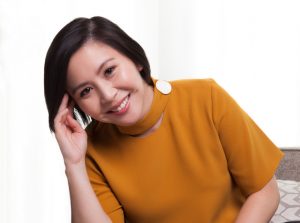
Cat Chen, Founder & CEO, Skylar
“I think discrimination against Asian Americans has always existed in America, but more so quietly and underneath the surface until more recently. The recent surge in violence and hate against Asians in America is horrific, senseless, heartbreaking, and angering. Being an immigrant but having lived in the U.S. for 30 years, I’ve never felt this level of angst and uncertainty about whether I truly fit in or what others really think of me because of my skin color. It’s clear there is a serious and underlying social issue here, and I hope we can seize this moment and create lasting social change through education, awareness, and activism so that Asian Americans can feel as American as they truly are. As a company, we care deeply about this issue and we’ve taken actions. We’ve made a donation to non-profit Stop AAPI Hate, and additionally we’re matching all employee donations to any non-profit organization supporting the AAPI community. Last year, we created a Diversity, Equity and Inclusion Committee and have been holding quarterly all-hands forums as a safe place for employees to discuss their thoughts on current issues and topics we can take as a company to continue to make Skylar a diverse, inclusive, and safe place to work. We’ve scheduled our next forum for 3/24 to discuss the Asian hate issue as a team. We’re also using the platform and voice we have, and are sharing resources and actions that can be taken with our team and broader Skylar community – you can find a list of resources we’ve compiled here.
I’m proud to be an Asian American, and this affects me deeply and personally. I was raised by my grandparents in Taiwan, and when I see a grandmother pushed and beaten for simply being Asian, I feel like a family member is getting hurt. An attack on any one group is an attack on us all. I also have a five-year-old daughter, and this is a topic that’s very hard for me for me to broach with her. How do I tell her what racism is when she doesn’t even know what race is? What I’m trying to do is to show her the importance of treating all people with kindness and to expose her to different cultures at an early age so she can see that differences are just differences and that they’re not bad.
I am unsettled and I feel inadequate in making a difference… but how it affects me is nothing compared to the Asian Americans who have been scared physically and mentally by the attacks. They are the ones we need to focus on and help to heal.”
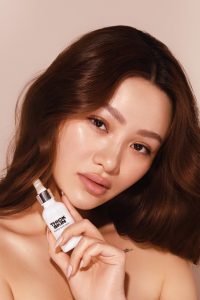
Sarah Cheung, Co-Founder, SACHEU Beauty
“I think Asian discrimination is an extension of the history of hate against Asians in America. Asian populations have always been ‘other-ized’ and excluded with oppressive policies since our migration to the U.S., recently this sentiment has translated into spurs of individual attacks. The bright side (if there is one) is it has rallied many Asians and non-Asians alike to start paying attention, to start labelling hate crimes as hate crimes and fight for a safer future for Asian communities.
I think the best activist work is done with communities and organizations. I’ve been very fortunate to help contribute (and will continue to contribute) to organizations such as #HateIsAVirus through my brand SACHEU Beauty, and give back to Asian communities. I also try to call attention to anti-Asian attacks as they occur but I’m sure most people’s social media is flooded with news already. Now it’s really up to the individual to educate themselves if they want to continue the fight and be a true ally.
I think the most harm the beauty industry can do is to exotify Asian culture/models as a marketing tool. The narrative we perpetuate with beauty representation has real life consequences that can translate into violence especially for Asian women. If they want to take further steps to show their support, donating to organizations that support AAPI communities as well as supporting Asian-owned brands is a good place to start.
The saying ‘self-care is preparation for community care’ really rang true in the past few weeks. I realize the responsibility I have as someone with a bigger platform, but sometimes it is difficult to say anything enlightening or hopeful when you’re emotionally processing these crimes against your community with everyone else in real time.”
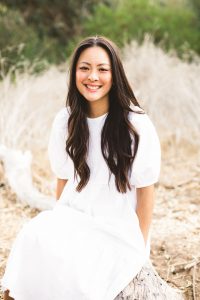
Amy Liu, Founder, Tower 28
“The recent targeted attacks and discrimination against Asians in the U.S. have made me concerned and fearful for my community. They are heinous, inexcusable, and sadly only part of a much larger problem that needs to be addressed in this country.
The blame for COVID-19 has been unrightfully put on the AAPI (Asian Americans and Pacific Islanders) community, and that is extremely dangerous. Words like the “China Virus” or “Wuhan Virus” are powerful, hurtful and wrong, and it’s so important that the AAPI community stands strong to support one another and raise awareness. I’m so grateful for the way we’ve been able to band together in the current climate – swapping ideas and stories, and lifting each other up through various platforms. I really see this time as a chance to begin to make real change in America.
We donated 100 percent of our web sales on March 19 to support the AAPI Community Fund through GoFundMe, and thanks to our incredible customers who decided to make change with their wallets, we were able to give nearly $25,000 to the StopAsianHate movement. I’m so thankful for the opportunity to engage with our community in this way and give back.
As a brand, we make sure to use our platforms and voice to spread awareness, and keep our followers in-the-know about what we are doing as a company to support. I feel lucky to have a chance to share my story and thoughts in the media, and hope that by doing so, I’m raising awareness and shedding light on issues that have been haunting Asians in the U.S. for too long.”
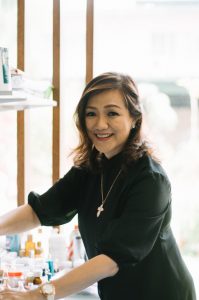
Mary Jane Ong, CEO, Pili Ani
“The recent increase in Asian hate crimes is alarming and deeply concerning especially as I have friends and relatives living on the East and West Coast. I just hope that everyone comes together and realizes that we are all human and we breathe the same air and occupy the same space.
One way of increasing awareness is to highlight our culture through our digital media platforms, raising more understanding by showing and concentrating on what the Philippines is like in terms of culture and people. Letting the world understand different values and cultures to have a sense of being connected.
Our beauty industry is a big contributor in terms of supporting diversity issues. We can start by being inclusive in terms of messaging, and help by providing a beauty space for each type of culture, highlighting the beauty of different cultures. This could greatly accelerate awareness and acceptance by showing that we, in beauty, support each and every diversity and culture of all race, color or ethnicity. It would also be a good idea to have a special month dedicated for different diversity brands in our beauty retail space.
Why are most of the attacks happening to our elderly? Where is the respect and compassion for our most vulnerable elderly population? I just hope and pray that things will get better and that, in our own small way, we can speak out and maybe be heard and understood.”
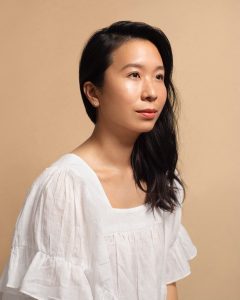
Tina Chow Rudolph, Founder, Strange Bird
“As a Chinese-American I am still processing all that’s happening. The women and men being brutalized look like my parents, my grandparents, my aunts and uncles. They look like the families I worked with as a social worker in Chinatown. They look like me. So, as a mother of two Chinese kids, a daughter, a sister, a cousin and a granddaughter, my heart hurts, I’m scared, confused and angry. But mostly I’m processing. However, as an Asian-American founder, I have been asked many times now to publicly share what I am feeling and also what I think the beauty industry specifically should do to help our community right now. As sound bites often go, these quotes have left a lot to be desired and don’t fully communicate all that I feel, all that I think, all that I am. I am grateful for editors to lend me their mic. But I am realizing more and more that the only sustainable form of change for the underrepresented, the underserved, the marginalized, the targeted is to get a mic of our own. The only way for us to do that is to keep speaking up in whatever way we can as a community and for our allies to support us in big ways. That means putting our brands in your stores, on your shelves, putting us in your magazines, your roundups, your ads. Sharing our story, the way we tell them and making sure that our faces are represented.”
The only way for us to do that is to keep speaking up in whatever way we can as a community and for our allies to support us in big ways. That means putting our brands in your stores, on your shelves, putting us in your magazines, your roundups, your ads. Sharing our story, the way we tell them and making sure that our faces are represented.”
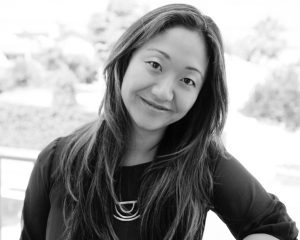
Jean Seo, Founder & CEO, Evolue
“I grew up in Orange County, California next to Huntington Beach, the mecca of skinheads in the 90s; you can only imagine how cruel 12-year-old kids were. I also took my PSAT for college in 1992 when California made affirmative action legal for four years where they discriminated against Asian students with better grades in favor of Black and Hispanic students based solely on race. The entering class at UCLA for my year had an average GPA of 3.9. Among Asian students, we did not know anyone who had under 4.2. After it was banned, there were no retributions to Asian students who did not get into better colleges.
I started in the green beauty industry in 2007 when it was dominated by white females and I had to work a lot harder. But as an Asian in America, I’m used to working harder than everyone else, it’s a given if I choose to live here. There were, and are, racist, hateful reviews on Amazon about my products just because it has my name on it asking why I make my products in China for $.15 and sell it for $15 in the U.S. It’s especially insulting since I’m one of the few beauty brands with my own lab in the U.S., and hire hard-working single mothers and pay them well. When it comes to violence against Asian Americans, I lived through the Rodney King Riots in 1992 [when Koreatown in Los Angeles was largely affected by looting,] and [police] blocked roads to get out of Koreatown while it was in flames. When the Korean store owners tried to protect their small businesses with weapons on their roofs, we were made fun of and called ‘Roof Koreans.’ So, to me, the current climate of Asian discrimination has not changed much. As I get older, people hide it better.
After the Rodney King Riots, the Koreans realized it is not good enough to work hard and be financially secure, we need a voice. I donate to Asian American politicians with forward-thinking policies.
I do not think anti-hate is a beauty issue. I believe it’s a second amendment right issue. I do not want people to buy products based on race. They should buy products that work best for them. Hiring people based on their merits, not their race, goes without saying.
Donating to support the AAPI community is amazing, but the work doesn’t stop there. My hope is that the beauty industry begins to see the importance of Asian representation (and not just the stereotypical Asian look we see time and time again in the media – I mean the representation of all Asians), from the internal hiring process all the way to external marketing campaigns.
I rarely saw Asians in the media that I could identify with growing up in the U.S., and it definitely affected the way I saw myself in the world. It’s time we do better for ourselves and generations to come.”
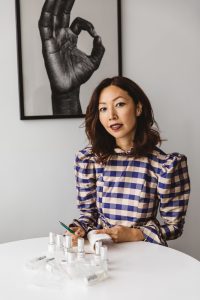
Bee Shapiro, Founder, Ellis Brooklyn, and contributing columnist at The New York Times
“I think that Asian discrimination is not being spoken about enough on a larger scale. There seems to be this pervasive feeling in broader culture that it’s not that bad. I read this completely irresponsible article in The Atlantic, by a white male author, Graeme Wood, which basically said we [Americans] have forgotten how to forgive. He was referring to the firing of the new Teen Vogue editor who made pretty malicious anti-Asian tweets in high school. This article just underlined for me the truth of what many probably think about Asian Americans: we should just turn the other cheek and forget about it. It was so racist on a deep level.
Considering how much the beauty industry here borrows from Asian beauty regimens and ingredients, and also how important the Asian American customer is in beauty, I absolutely believe that the industry should support anti-hate measures. Ellis Brooklyn is currently working with other brands on a StopAAPI campaign. We are also continuing to speak out on this on social media and our other platforms.”
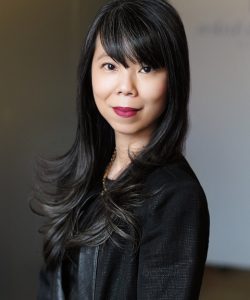
JuE Wong, CEO, Olaplex
“It is most unfortunate because this is a very uncomfortable situation Asian Americans find ourselves in. In general, we do not normally like to shine a spotlight on ourselves. But given the circumstances, I think it is important that we address the situation with thoughtful discussions and education. I engage in conversations to hopefully change minds rather than to shame the perpetrators.
I have made public statements on both my personal and our company platforms to appeal for respect and dignity for the Asian-American community. I have also joined forces with Guy Tang, Olaplex Ambassador, for a special edition episode on Olaplex’s Beauty Uncovered podcast on #stopasianhate. I was also on Clubhouse as part of a panel called “Beauty CEOs United for #StopAsianHate” on this matter.
I think it’s important to acknowledge that the unprovoked attacks against the Asian American community is a hate crime. The debate over if it is or not a hate crime clouds the real situation and takes away from the conversations we need to have. The beauty industry providing a platform to shed light on this situation is definitely a step in the right direction.”
